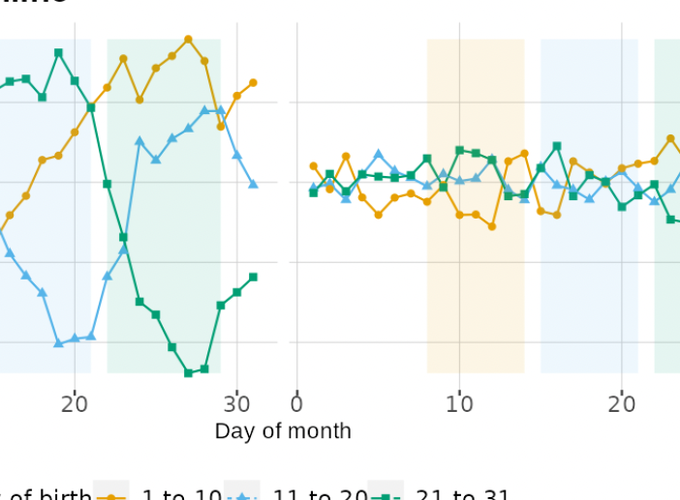We estimate the impact of anticipated transfers on labor supply using confidential driver-level data from Uber. Leveraging the staggered timing of Social Security retirement benefits within each month and a novel identification strategy, we find that the labor supply of older drivers declines by 2%, on average, during the week of benefit receipt—a precisely estimated but economically small effect. Individual-level analyses reveal that the average effect obscures heterogeneous micro-behavior: while the majority of drivers do not meaningfully adjust laborsupply in response to social security benefits, a small group reduces labor supply by more than 40%. The results suggest that departures from standard models of labor supply can be substantial, but only for a small number of individuals.
 Figure by Beatty and Weill (2021)
Figure by Beatty and Weill (2021)